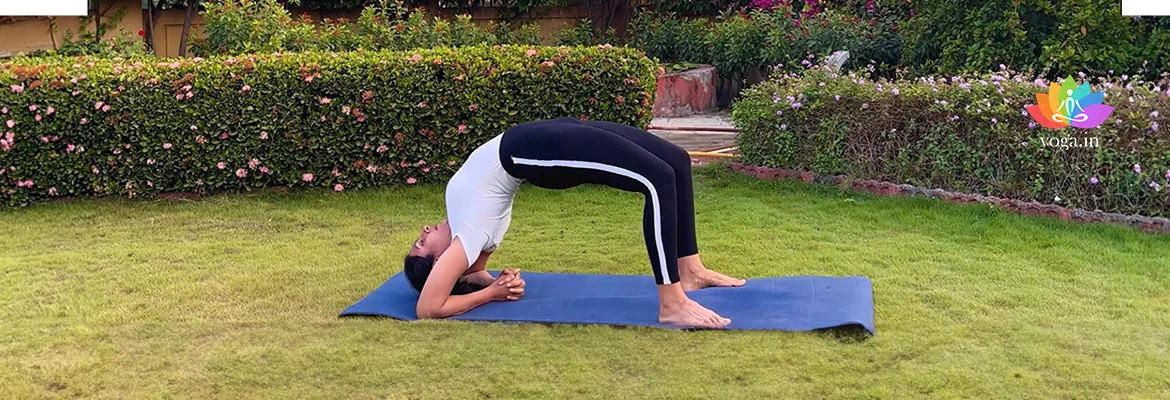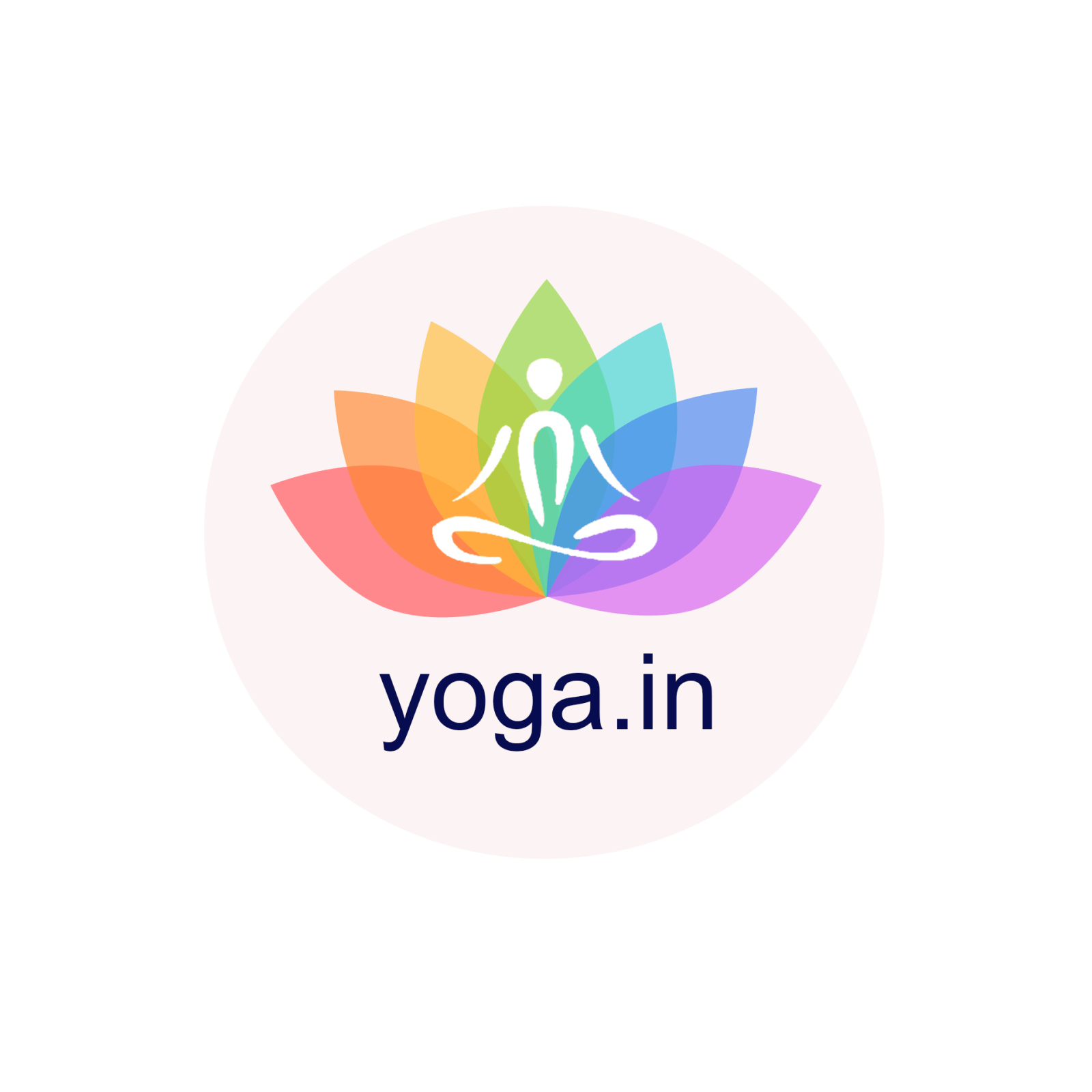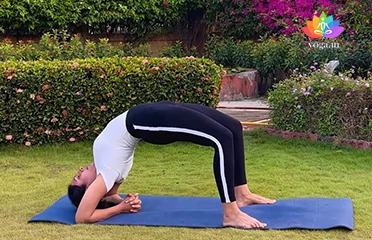After lying down on the mat bend your knees, placing the base of your feet firmly on the mat and your arms by your side.
Introduction to the Asana
The Sanskrit name is derived from Viparita (विपरिता) meaning inverted, Danda (दण्डा) meaning staff and asana (आसन) meaning posture or seat.
Step to get in the pose
-
-
Raise the hip and the middle back without leaving the feet and upper back on the floor.
-
Slowly take your arms up, place your palms beside your shoulders, fingers pointing towards the lower body, elbow bent facing the ceiling.
-
Press the palm on the floor to raise the head and hip more up.
-
Slowly bring your crown of the head down.
-
Place your elbows on the floor in line with your head and interlace your fingers behind the head.
-
Weight from the forearm to the elbow is equally distributed on both arms without disturbing your neck.
-
Breathe in this normally and rest in this position for a few seconds.
-
To get out of this pose, bend your knees, bringing your head parallel to the floor and rest on it.
-
Slowly bring your pelvic floor down and rest your body on the mat.
Common mistakes and pitfalls
-
Collapsing into the shoulders.
-
Arching the lower back too much.
-
Allowing the head to drop back.
-
Letting the knees splay out.
-
Not engaging the leg muscles.
-
Rushing into the pose.
Benefits
-
Tones and strengthens your core, back, legs and shoulders.
-
Improves flexibility of the spine.
-
Reduces lower backaches.
-
Stimulates all the major glands – adrenal, thyroid, pituitary, and pineal glands.
-
Helps in preventing arterial blockages by strengthening the heart.
-
Relieves indigestion and flatulence.
-
Enhances lung capacity and breathing.
-
Enhances hormone balance in the body.
-
Revitalizes the central nervous system.
-
Activates the heart chakra.
-
Relaxes and sooths the mind.
Contraindication
-
Avoid if suffering from hip, knee, neck, cervical, back or shoulder pain or injury.
-
Avoid if you are suffering from hernia, ulcer or tuberculosis.
-
Avoid if you have headaches or eye strain.
-
Avoid if you have body balancing issues or have a hunch back.
-
Avoid if you have high or low blood pressure or have cardiac issues.
-
Avoid during pregnancy and menstruation.
-
Avoid if suffering from migraine or issues of depression.




